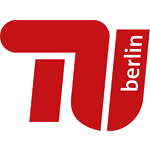Difference between revisions of "Team:Berlin"
Jpalbrecht (Talk | contribs) |
Jpalbrecht (Talk | contribs) |
||
| Line 12: | Line 12: | ||
</script> | </script> | ||
</html> | </html> | ||
| − | + | <html> | |
| − | + | <head> | |
| − | <html | + | |
<style> | <style> | ||
top_menu_14, #top_menu_under, #top_menu_inside{ | top_menu_14, #top_menu_under, #top_menu_inside{ | ||
| Line 27: | Line 26: | ||
.accordion-header, .active-header, .accordion-header_noaction { -webkit-box-sizing: initial; box-sizing: initial; color: rgb(101, 100, 89); font-family: Arial, Gadget, sans-serif; font-size: 13.92px; font-weight: bold; line-height: normal; margin: 0; } | .accordion-header, .active-header, .accordion-header_noaction { -webkit-box-sizing: initial; box-sizing: initial; color: rgb(101, 100, 89); font-family: Arial, Gadget, sans-serif; font-size: 13.92px; font-weight: bold; line-height: normal; margin: 0; } | ||
</style> | </style> | ||
| + | </head> | ||
| + | </html> | ||
| + | |||
| + | <html lang="en"> | ||
| + | |||
<body> | <body> | ||
<script type="text/javascript"> | <script type="text/javascript"> | ||
Revision as of 14:29, 12 September 2015
erste Frage, Thesis?
That’s the aim of the interdisciplinary iGEM Team Berlin!
Plants which degrade plastic?
This year’s iGEM project of the Berlin team is all about plastic -
to be specific: microplastic and the clearance of our water with the aid of Synthetic Biology.
The idea is to build a modular filter system for wastewater treatment plants which is able to degrade plastic.
Bakterial flagella, moleculare hair-like structures, are equipped with a combination of enzymes that are able
to breakdown plastic molecules.
Project
Projekt erklaerung.
Team
Team Erklaerung.
Safety
Safety Erklaerung
Thanks to


















 Plants which degrade plastic?
Plants which degrade plastic?